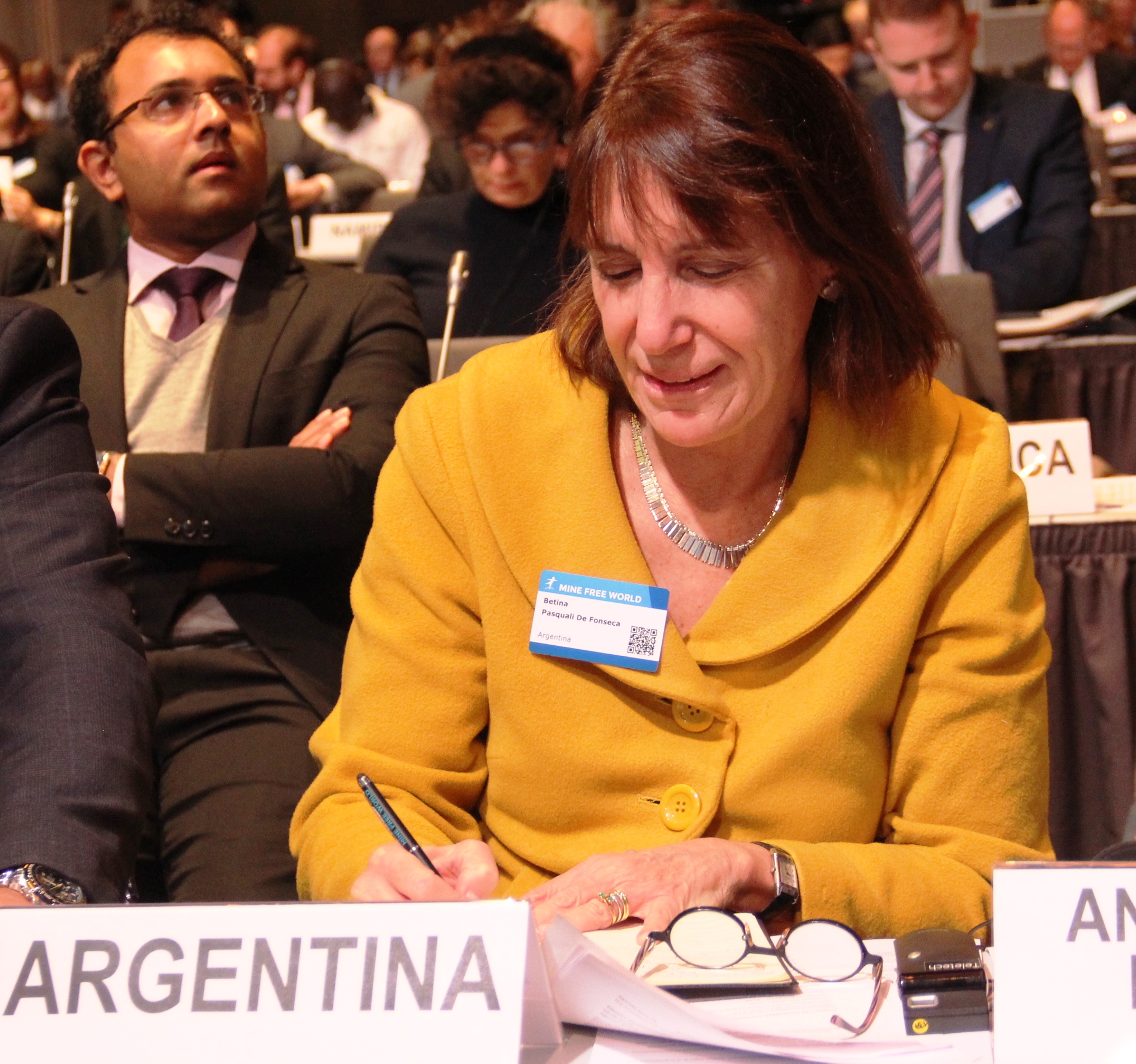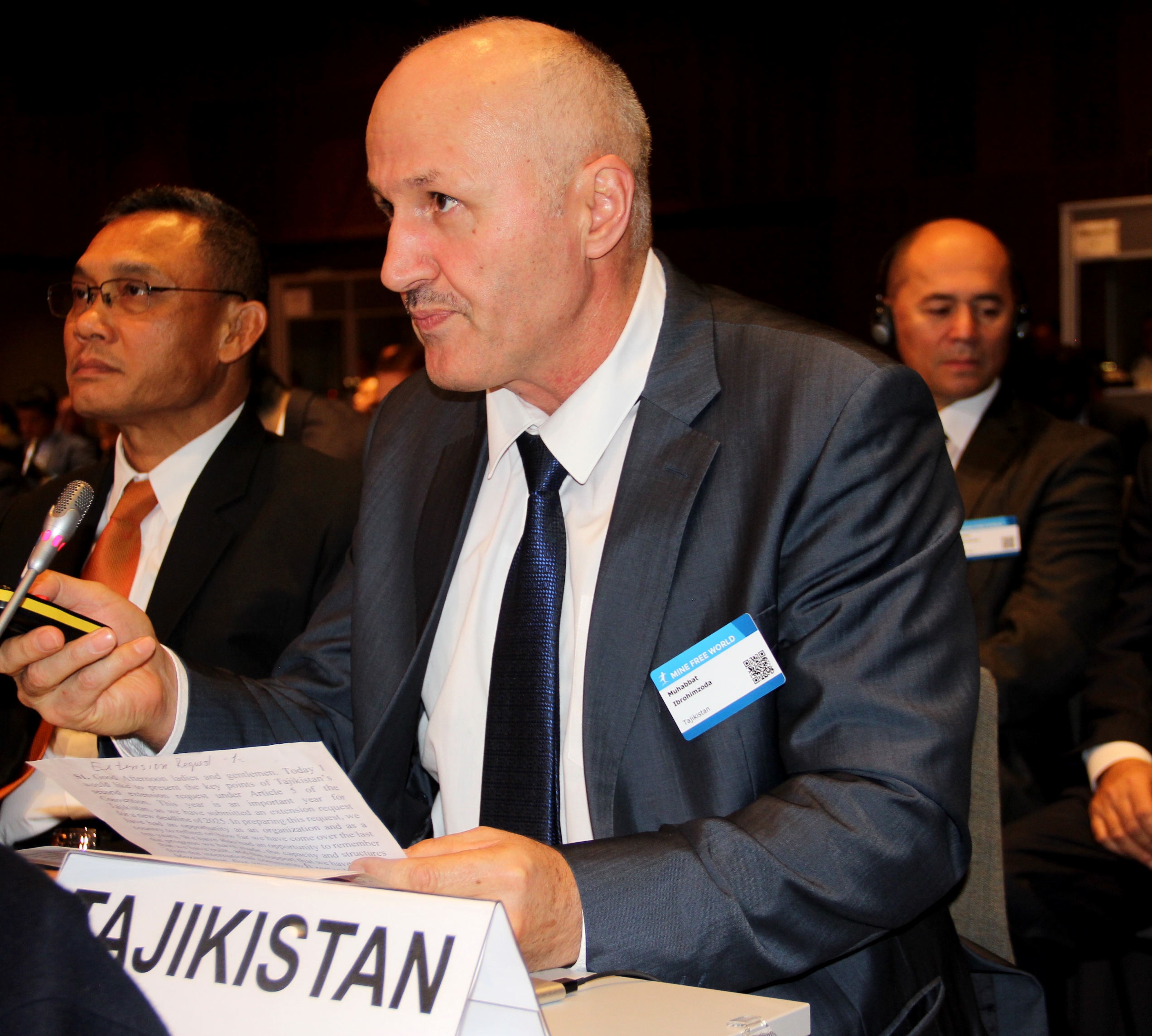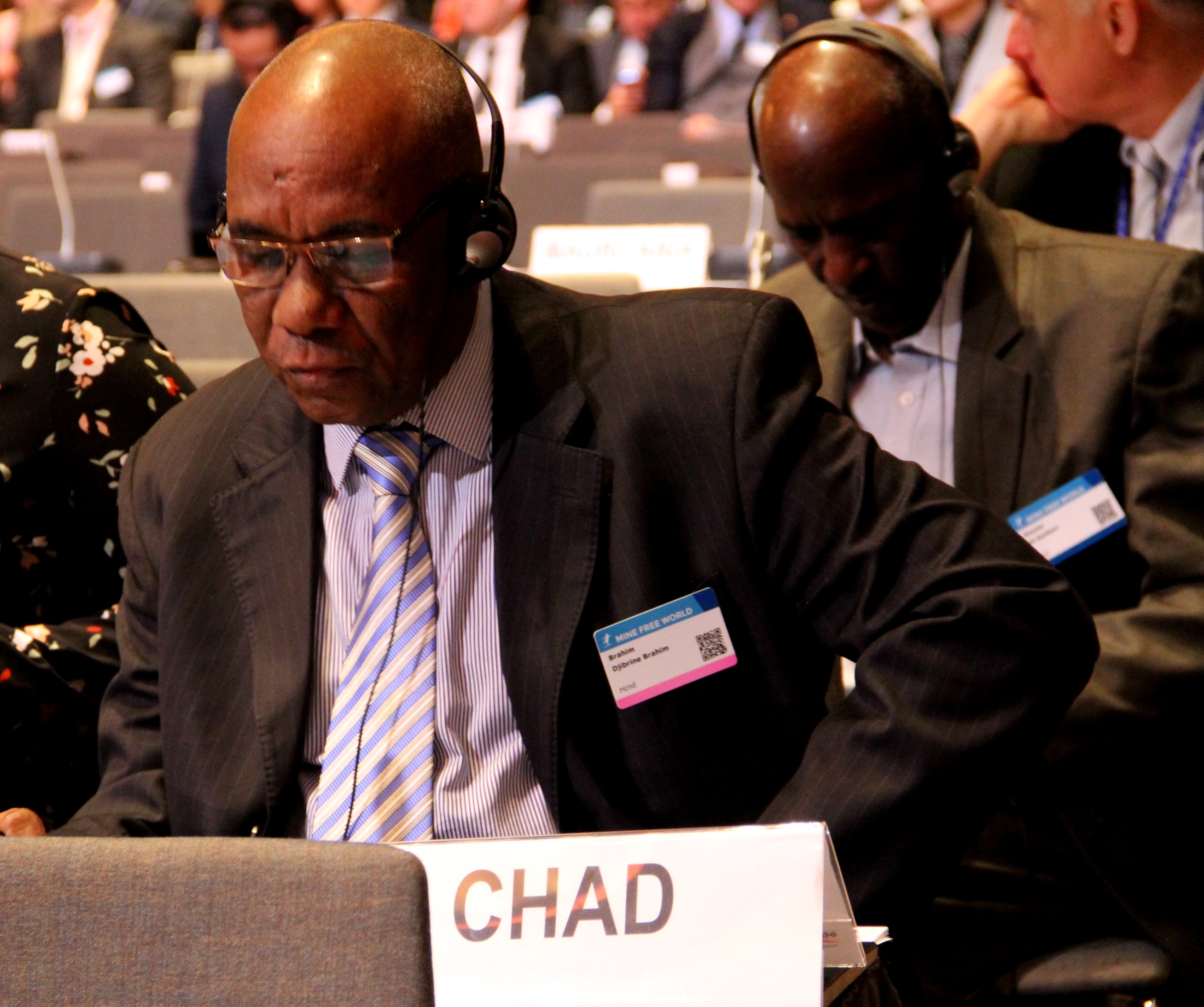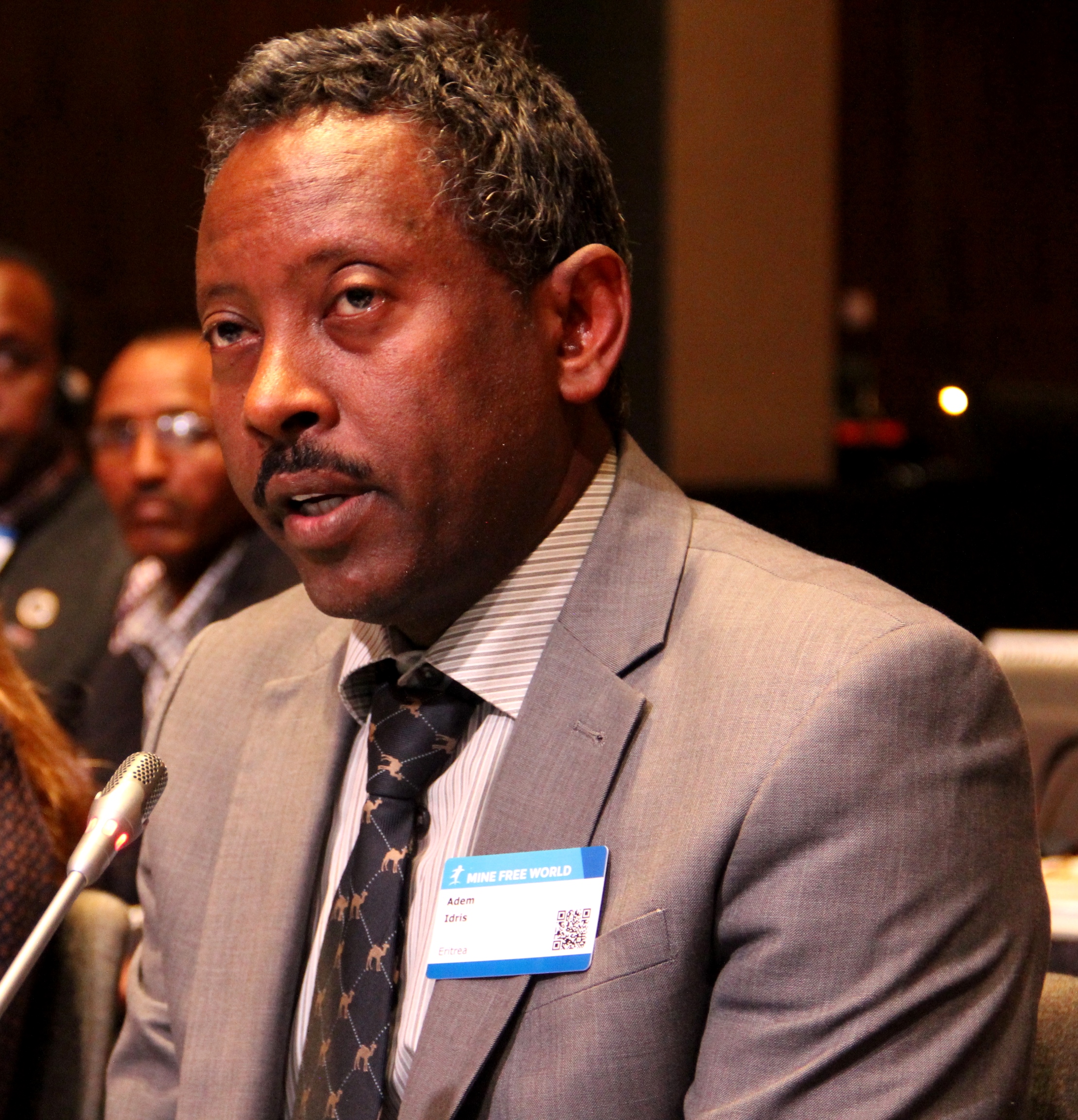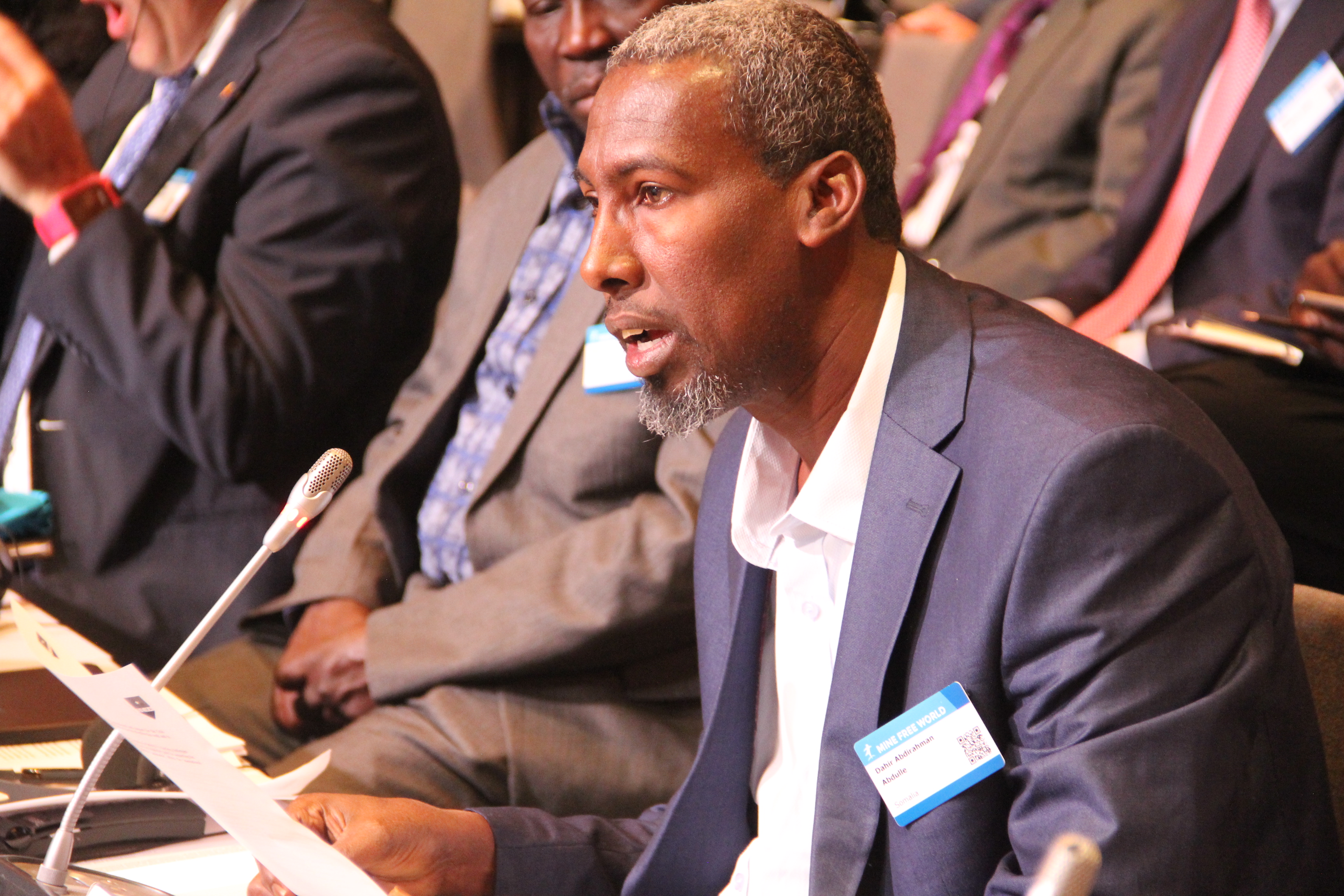29.11.2019
Download the press release
Find photos of the meeting here and of the other events here
Oslo, Geneva 29 November 2019 – The Anti-Personnel Mine Ban Convention’s quinquennial meeting, the Oslo Review Conference on a Mine-Free World, concluded a week of work in Norway with the adoption of a global plan of action to address the threat of anti-personnel mines and assistance to mine victims. Over 700 participants representing over 100 States (92 States Parties, 13 not party) and over 30 international and non-governmental organisations, and dozens of mine survivors came to Oslo where this humanitarian instrument was adopted in 1997.
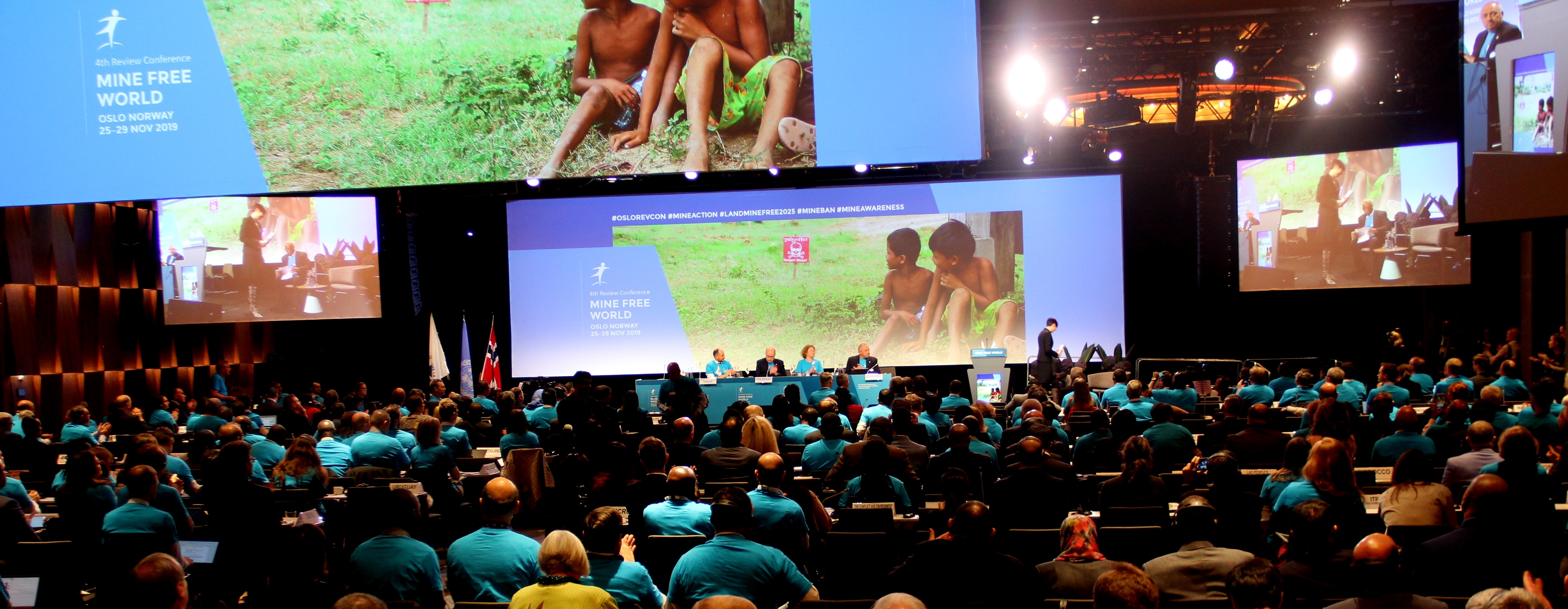
Non-official meeting summary
Welcomed news
- The Americas is a step closer to becoming mine-free after Chile announced it is only a couple of months away from declaring that after nearly two decades it has finalised its mine clearance work.
- In a joint statement, Colombia and Spain shared with the plenary their fruitful and continued cooperation in the area of mine action.
- In a joint statement, Ecuador and Peru which once laid mines along their common border have increased joint border demining as they seek to meet their mine clearance obligation but have called on the international community to support their efforts to meet their deadline. The Organization for American States (OAS) stated that it will support their efforts.
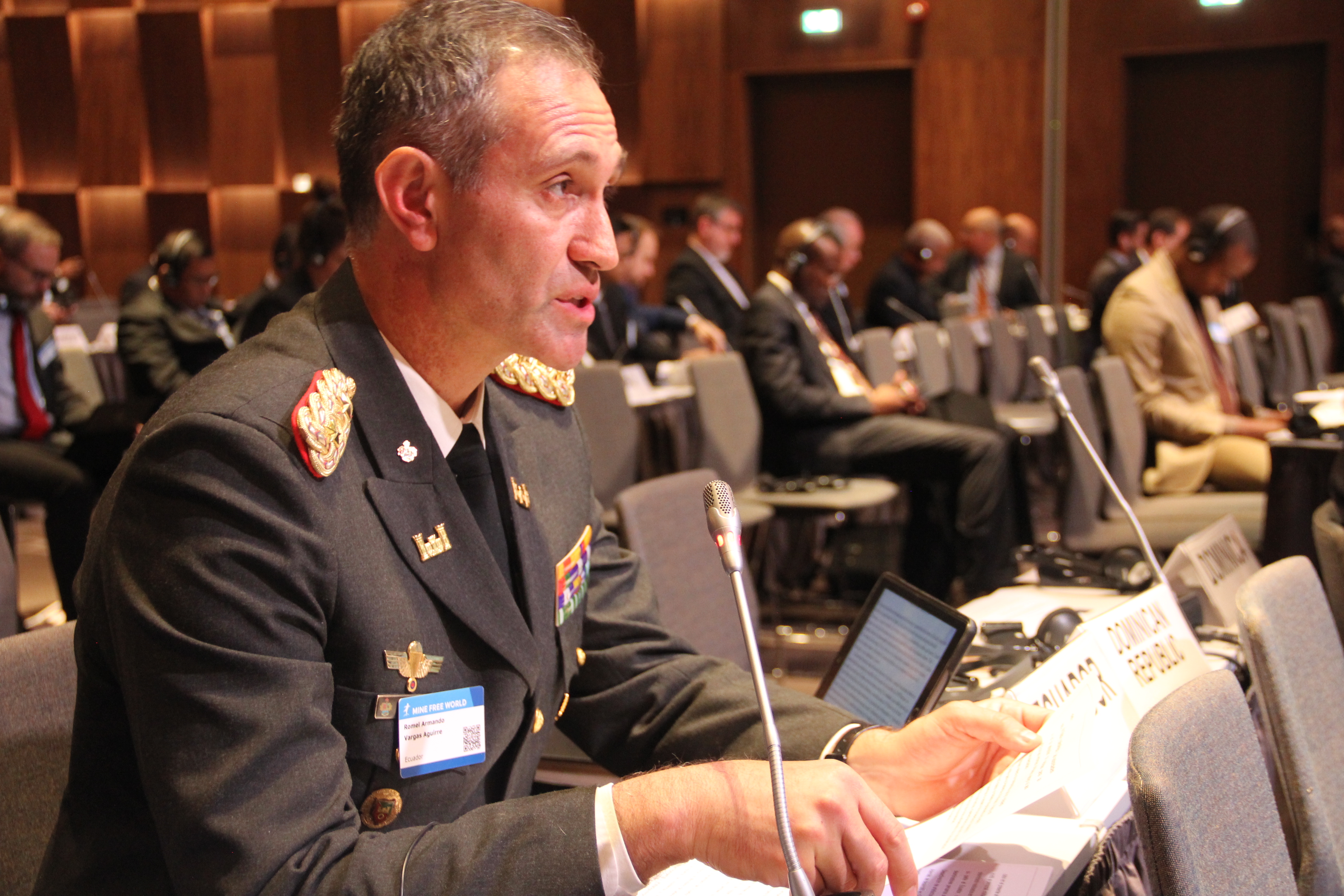 |  |
|---|
- The Democratic Republic of the Congo announced that it could finish its mine clearance by 2021 and perhaps sooner if it receives the necessary funds from the international community to do so
- Botswana announced it has destroyed anti-personnel mines it had retained as allowed by the Convention, doing so on 18 November with support the of Norwegian People’s Aid, and that it no longer retains mines for permitted purposes.
- Thailand announced that it had destroyed over 3,000 anti-personnel mines it had retained for permitted purposes under the Convention retaining no stockpiled mines and that is on target to meet its 2023 deadline.
- Australia elaborated on how it was able to turn away from employing anti-personnel mines for permitted purposes and turned to training mines as a safer alternative.
Seven countries requested additional time to clear mine-contaminated areas
- Argentina was granted until March 2023 for completing destruction of AP mined areas.
- Cambodia which continues to suffer great contamination was granted until 31 December 2025 and was asked to submit an updated workplan by 15 August 2022 and 30 April 2024.
- Chad was granted until 1 January 2025 and will have to submit more up-to-date information including on efforts to reorganize, strengthen and improve the National High Commission for Demining (HCND).
- Eritrea was granted a temporary extension (2020) so that it can present a formal request.
- Ethiopia was granted until 31 December 2025, with updates on 2021 and 2023 noting that its demining plan may be affected by outcomes of agreements on its border with Eritrea, and funding.
- Tajikistan was granted until 31 December 2025 to address its mine contamination.
- Yemen which had been on track to meeting its obligation has encountered massive new contamination and given until 1 March 2023 to obtain clarity on the extent of its new mine contamination as the security situation permits.
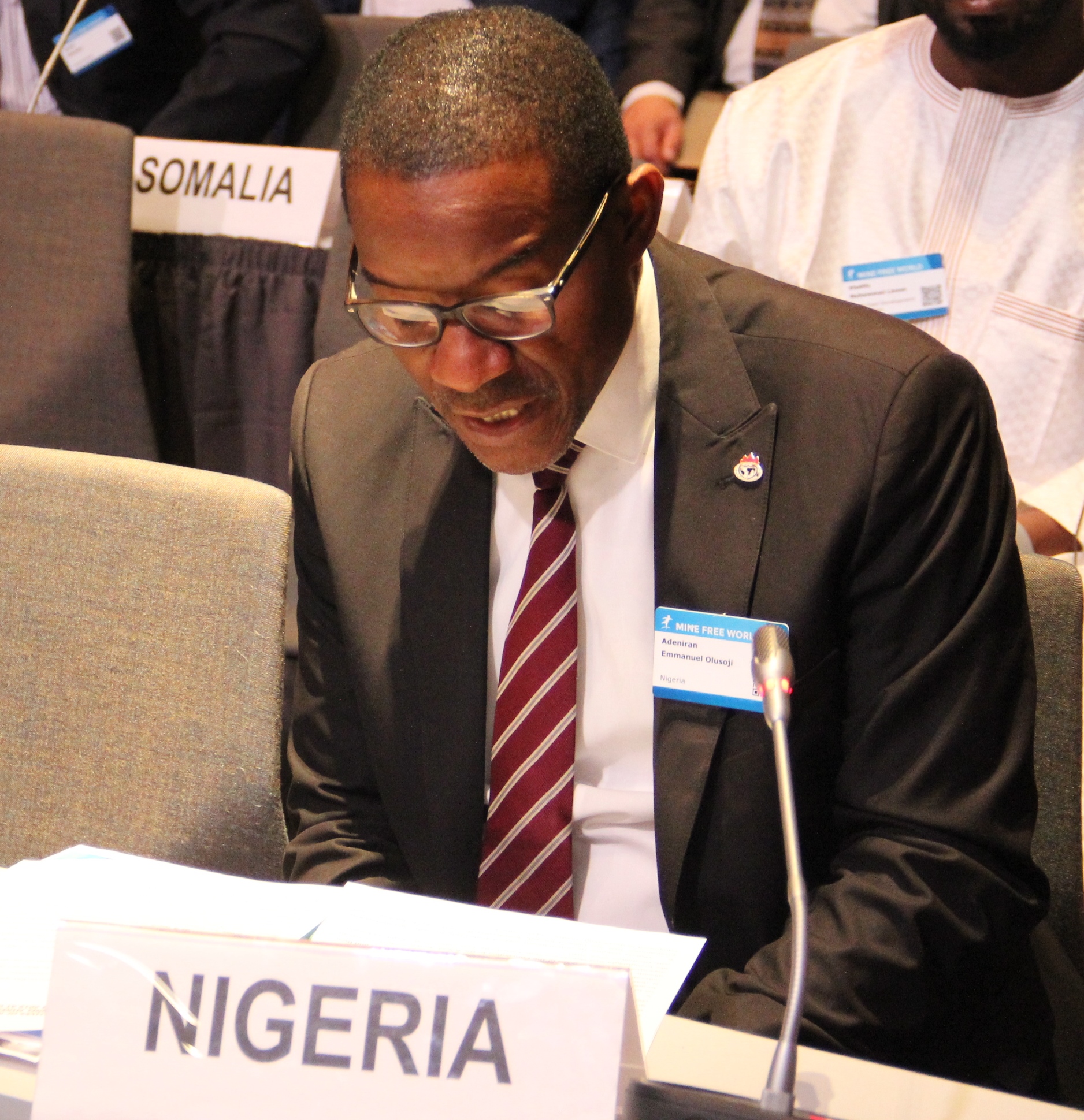
One country declares new contamination
- Nigeria which declared itself free of mines in 2011, said it has been experiencing the “tragic consequences of the production and use of anti-personnel mines of an improvised nature by non-state actors especially in the North Eastern region, causing internal displacement, loss of lives and properties.” It is yet unclear the extent of contamination.
“Every morning, the Military has to undertake clearance of the road Maiduguri to Bama before allowing civilian movements.” With Nigeria acknowledging the contamination, the number of States having to clear mined areas under their jurisdiction or control grew to 33 (nine of them in Africa).
Stockpile destruction
- Greece announced that due “complications emanating from environmental compliance issues have caused the temporary pause of the demilitarization process of the remaining anti-personnel mines”, yet remains fully committed to fulfil its obligation.
- Ukraine which still has over 3.5 million of stocked mines to destroy stated in an earlier written report that it hoped to demilitarize most of these mines by 2021, and remains fully committed to fulfilling its obligation.
Assisting the victims
- Somalia and South Sudan announced at the meeting that respective draft national plans for victim assistance and disability had been developed and would now enter into consultation with respective national stakeholders.
- The UN Secretary General’s Special Envoy for Disability and Accessibility opened a special meeting on assistance to mine victims together with Norwegian Minister for Development Dag-Inge Ulstein, linking efforts towards mine survivors with those under other instruments such as the Convention on the Rights of Persons with Disabilities (CRPD).

Adoption of the Convention and its norms
Lao PDR and Myanmar which are not party to the Convention attended at a high political level presenting statements through their Vice Minister of Foreign Affairs; this is the first time Myanmar has attended a Review Conference noting it “has expanded the space for humanitarian mine action operators active in the country”. The Syrian Arab Republic spoke during the Political Commitment section calling for humanitarian assistance for mine action to deal with ever growing mine casualties and contamination. In addition, China, Egypt, India, Lebanon, Morocco, Pakistan, Saudi Arabia, United Araba Emirates, and United States of America attended the meeting as Observers.
Norway’s leadership
The meeting and year-long work was led by Norway a world leader in mine action. “For this important meeting in the life of the Convention, Norway set out to raise awareness of the challenges, renew political attention, and put protection at the forefront of mine action efforts which is of high importance to us,” said Ambassador Hans Brattskar who presided over the treaty this year.
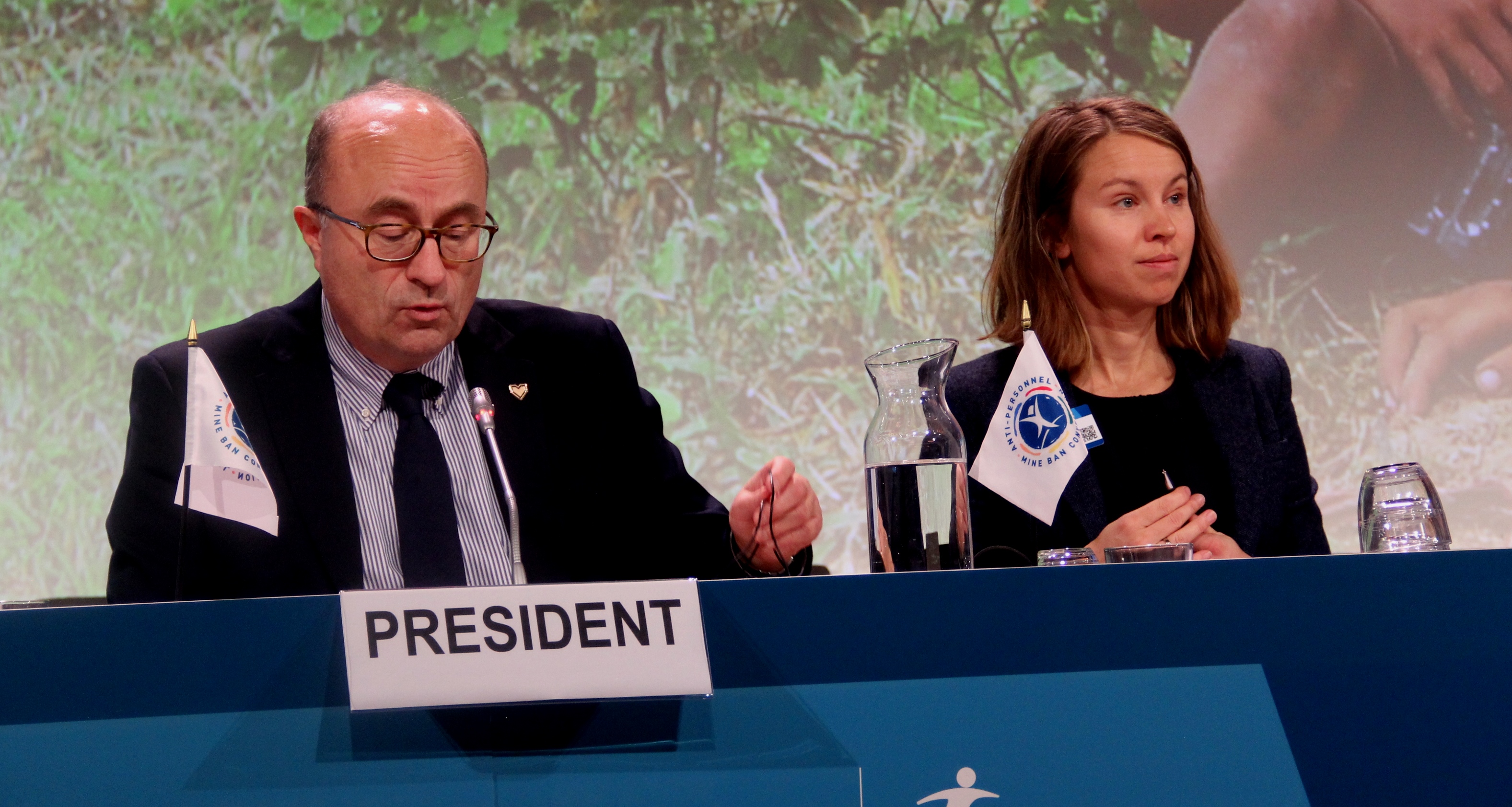
“We have been innovative, applied a gender perspective into every section of the Convention, elevated the role of mine risk education in preventing new casualties, and pushed States to increase the pace of survey and mine clearance. Our efforts will continue beyond the meeting ending today here in Oslo, extending to the more than 20 mine action projects that Norway supports around the world. As we end the Conference and through the Oslo Action Plan adopted unanimously, we leave a strong roadmap for the next five years ahead. The Plan is pioneering and calls for measurable actions that translate to tangible results.”
The Minister of Foreign Affairs of Norway handed over the Convention Presidency to Sudan which was represented by the Minister of Defence.
The Conference was opened and closed by the Norwegian Minister of Foreign Affairs Ine Marie Eriksen Søreide. In addition Haakon, Crown Prince of Norway, Princess Astrid of Belgium, Prince Mired Raad Zeid Al-Hussein of Jordan, and Vice Ministers from various countries attended the meeting.
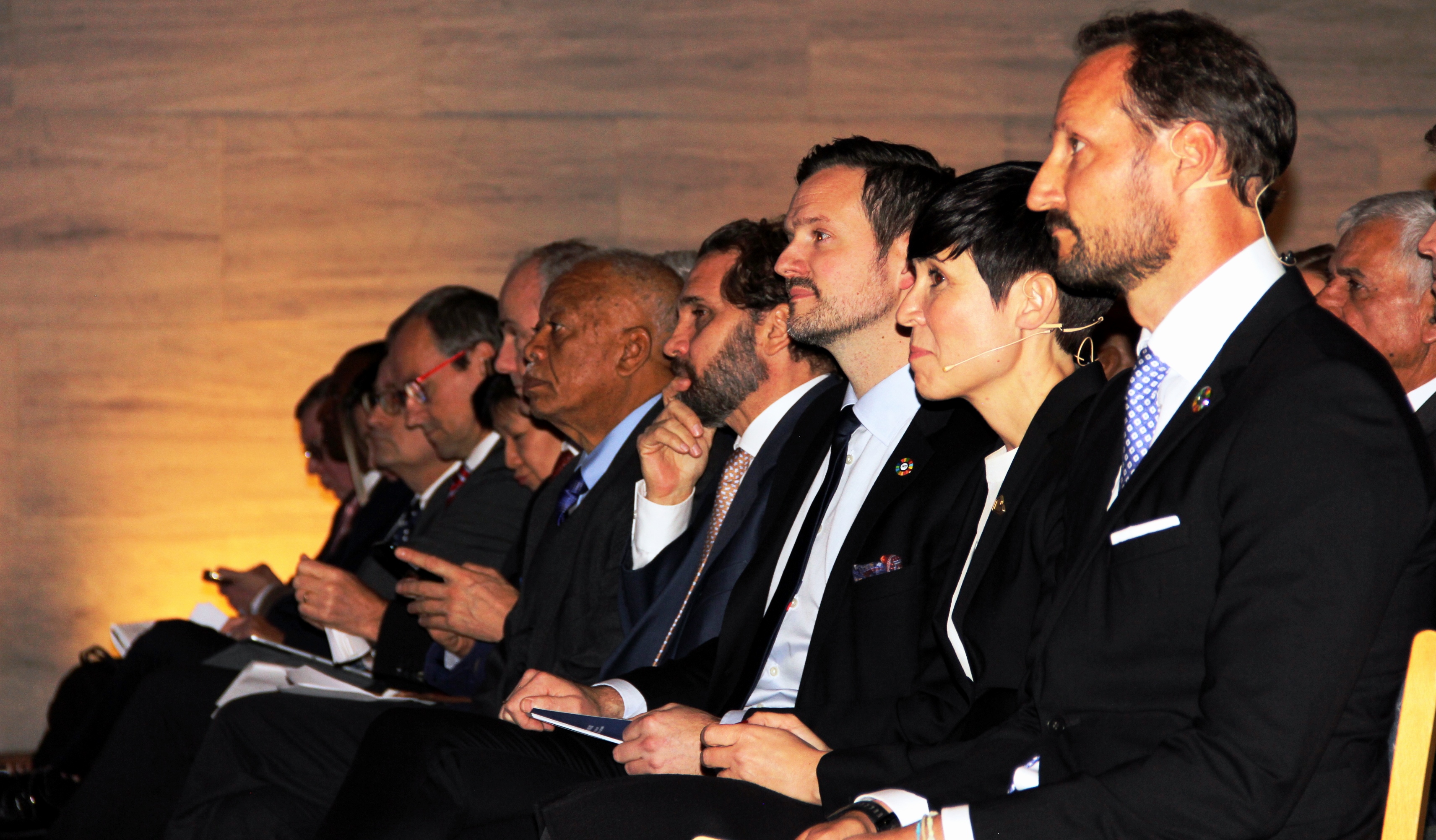
Prince Harry, Duke of Sussex who supports the Landmine Free 2025 campaign, called on all States to increase funding to clear mines left in countries like Angola and Cambodia which have suffered immensely as a result of decades of mine contamination.
For more information, contact the Convention's Implementation Support Unit, isu(at)apminebanconvention.org





